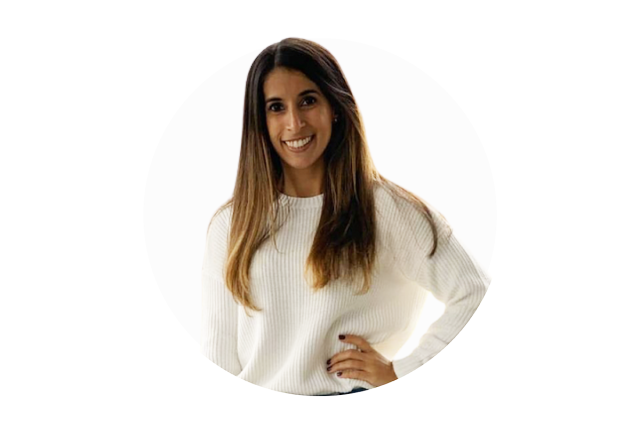Speech-Language Pathologist with Three Kean Degrees Develops New Teaching Tool

When Stefanie Martelle, SLPD, was choosing the focus of her doctoral thesis at Kean University, she had a brainstorm: Create a visual learning tool to help neurodivergent students understand idioms, those expressions of speech that mean something other than their literal translation.
A year later, Martelle’s program, Teaching Idioms in Context, is helping students grasp the meaning of such words and phrases as “stick together,” “in a pickle,” and yes: “brainstorm.”
“It's something I developed in my clinical practice based on evidence that using idioms in context makes them easier to understand,” said Martelle, a three-time Kean graduate who holds several jobs in her field, including one with the Bridgewater-Raritan Regional School District. “Kids who are autistic benefit from seeing or creating visuals, as well as from spoken words, and the program lends itself to that.”
Her program, an oversized, illustrated card deck featuring educational stories, game ideas and detailed user instructions, helps demystify 24 expressions. The set can be used by speech-language pathologists, teachers and parents to explain idioms not only to children, but to adults who are neurodivergent or learning English as a second language.
Teaching Idioms in Context became available in mid-July 2023, about a year after Martelle earned her doctor of speech-language pathology degree from Kean, with distinction, garnering a 4.0 grade point average and a commendation on her comprehensive exam. She sold the program to Bjorem Speech Publications because of the company’s commitment to diversity and inclusion, which echoes the philosophy at Kean.
“Bjorem’s speech and language products are different from traditional ones that mainly feature white people who don’t have disabilities,” she said. “I really like how students can look at these products and say, ‘Hey, that looks like me,’ or, ‘That student has a cochlear implant, and I do, too.’”
Sarah Patten, Ph.D., assistant professor in Kean’s School of Communication Disorders and Deafness (CDD) and coordinator of the university’s doctoral program in speech-language pathology, praised Martelle’s clinical and academic skills.
“Stefanie is Kean’s first speech-language pathology doctoral student/graduate to have her work published in a peer-reviewed journal and to create a nationally available clinical resource – one that teaches a skill children need to communicate and understand the curriculum in school,” Patten said. “She is the epitome of excellence within the field, and we look forward to the ongoing expansion of her work.”
Martelle said she initially chose Kean because she wanted to remain close to family in her hometown of Colonia. As an undergraduate who earned a B.A. in speech and hearing science, summa cum laude, in 2014, she discovered her love of speech-language pathology and learned sign language, which has helped her ease communication difficulties for children struggling to speak.
Impressed with Kean’s professors, Martelle returned for her master’s degree in speech-language pathology, which she earned in 2017 with a 3.94 grade point average. While pursuing that degree, she was selected to work 20 hours a week as a graduate assistant by Mahchid Namazi, Ph.D., CCC-SLP, associate professor in CDD.
“Stefanie demonstrated a rarely seen level of professionalism, as well as mature clinical skills, while being in the top 2% of her graduating class,” Namazi said. “I was delighted when she joined our doctoral program, and I later invited Stefanie to discuss her research with my incoming graduate students, who found her presentation and product outstanding.”
Martelle, a Middlesex Borough resident, has spent six years working in the Bridgewater-Raritan Regional School District with fifth and sixth graders who have learning or speech disabilities. Since 2018, she has also worked with children ages 2 to 11 at Speech and Hearing Associates, which has numerous private offices in North Jersey, and as an independent contractor in the homes of children up to age 3.
“I didn't think I would like all of these settings,” she said, “but it turned out I enjoyed them all.”
That’s why Martelle recommends that students studying speech-language pathology keep an open mind about their professional possibilities.
“Take every opportunity to observe and learn, no matter the setting,” she said. “Beyond that, keep your clients and their values at the forefront by individualizing your treatments.”